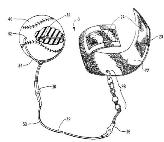South Bend; IN – Patent attorneys for Lippert Components of Goshen, Indiana filed a patent infringement suit in the Northern District of Indiana alleging Actuant Corporation of Menomonee Falls, Wisconsin, Versa Technologies of Milwaukee, Wisconsin and Engineered Solutions of Milwaukee, Wisconsin infringed patent no. 8,016,343 RETRACTABLE ROOM ACTUATION ASSEMBLY FOR RECREATIONAL VEHICLE, which has been issued by the US Patent Office.
The complaint states that the defendants displayed a new product, called “In-Wall Slide,” at a trade show in Kentucky in November and December 2010. Thereafter, Lippert notified the defendants that it had a patent application pending for the exact same technology utilized by the In-Wall Slide product. Lippert’s ‘343 patent was granted on September 13, 2011. The complaint states that the defendants again displayed the In-Wall Slide product at the 2011 trade show. Libbert alleges that the In-Wall Slide product infringes its ‘343 patent. The complaint makes one claim of patent infringement and seeks an injunction, damages, attorney fees and costs.
The complaint states that the defendants again displayed the In-Wall Slide product at the 2011 trade show. Libbert alleges that the In-Wall Slide product infringes its ‘343 patent. The complaint makes one claim of patent infringement and seeks an injunction, damages, attorney fees and costs.
Practice Tip: The plaintiff has included an interesting fact to establish personal jurisdiction. The complaint alleges that Versa and Engineered Solutions operate a business in Mishawaka, Indiana called Power Gear.
 Indiana Intellectual Property Law News
Indiana Intellectual Property Law News





